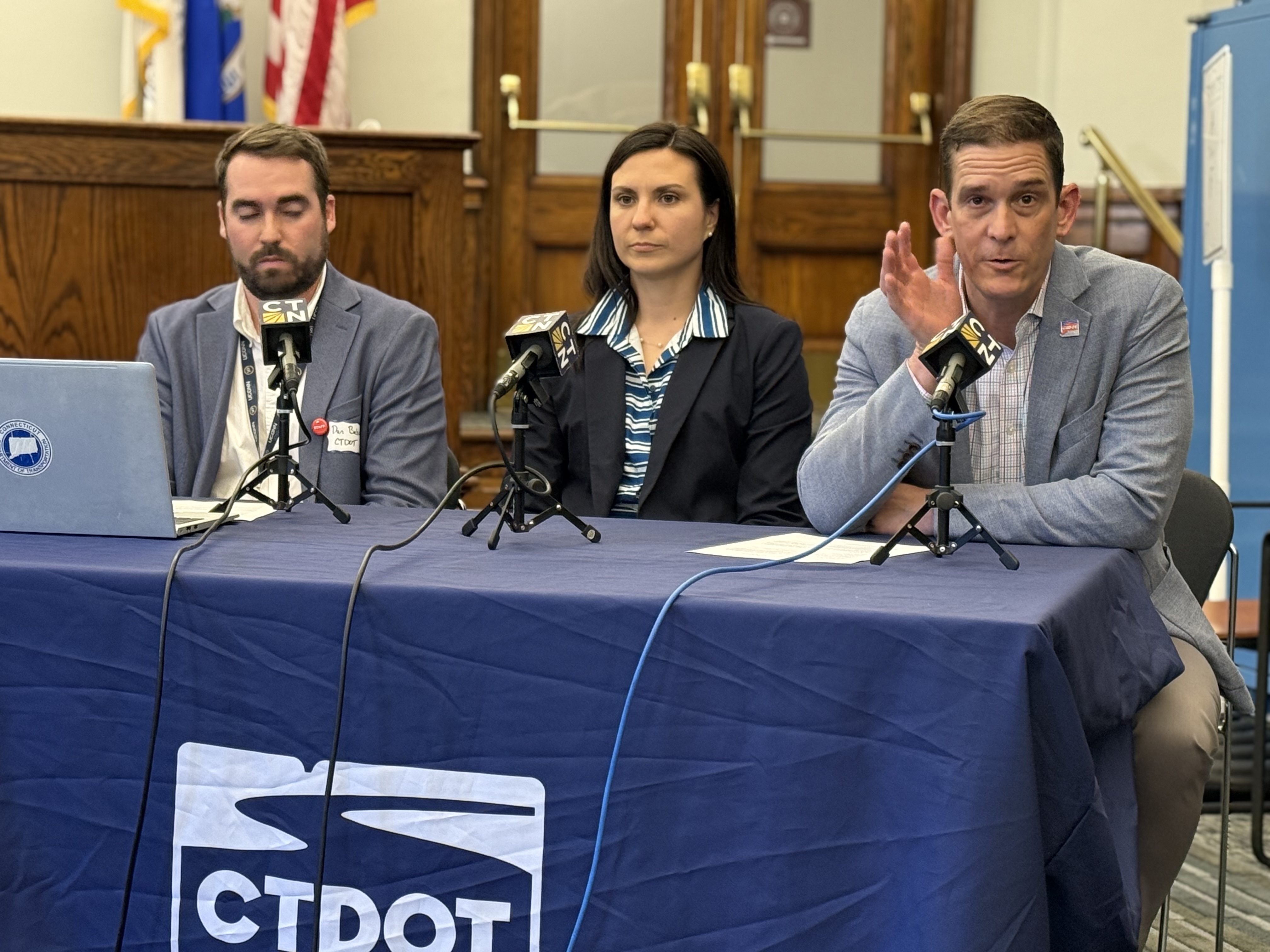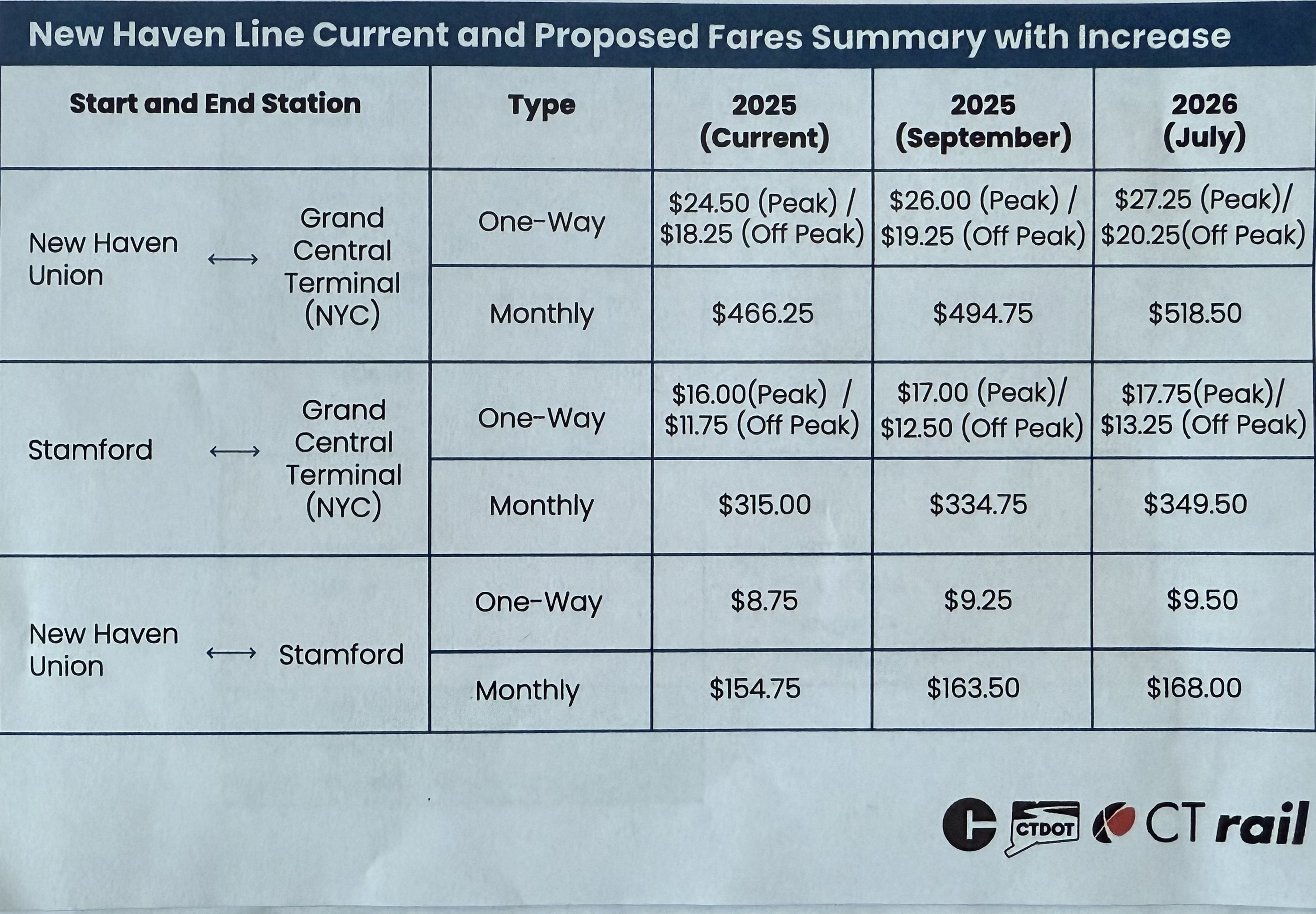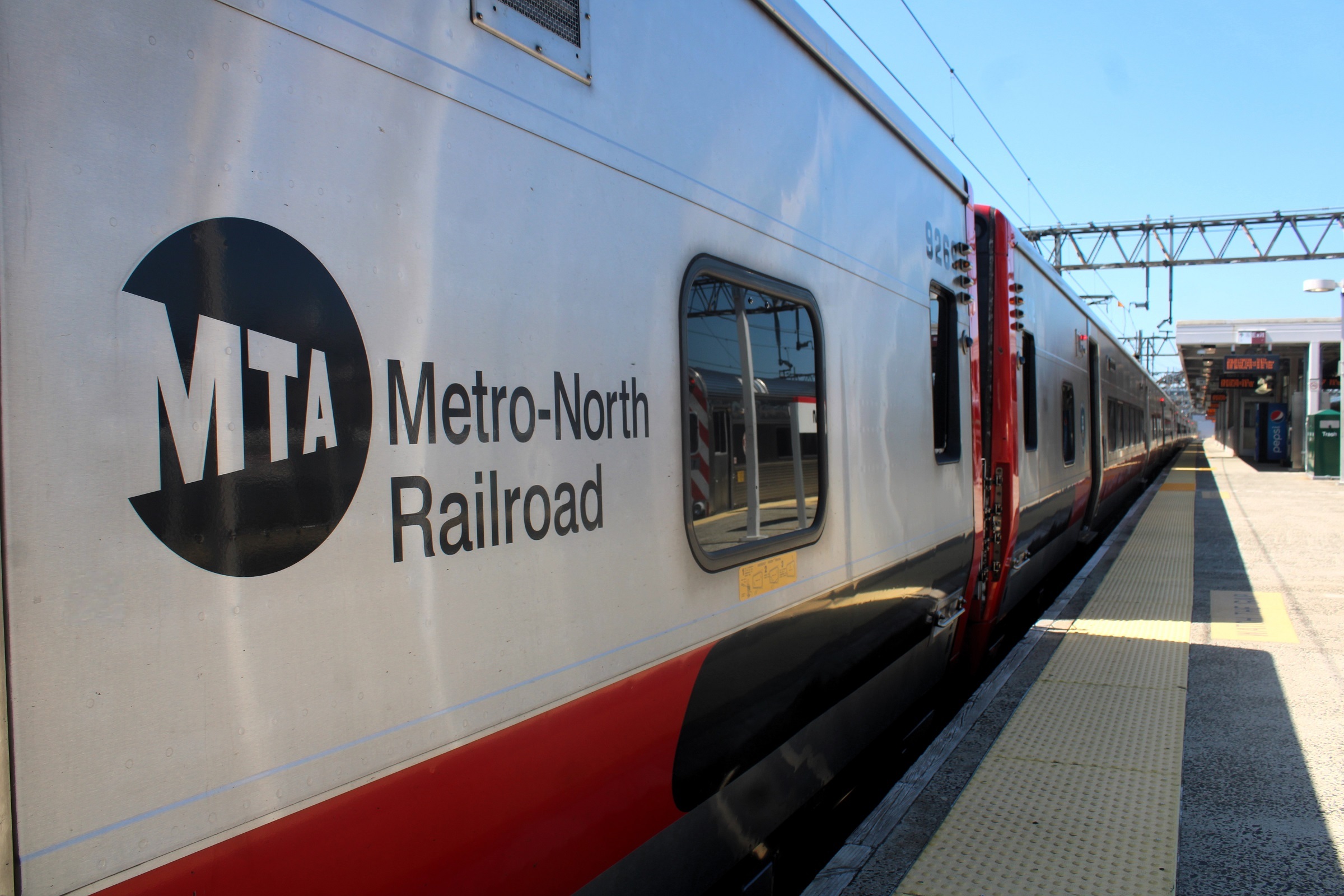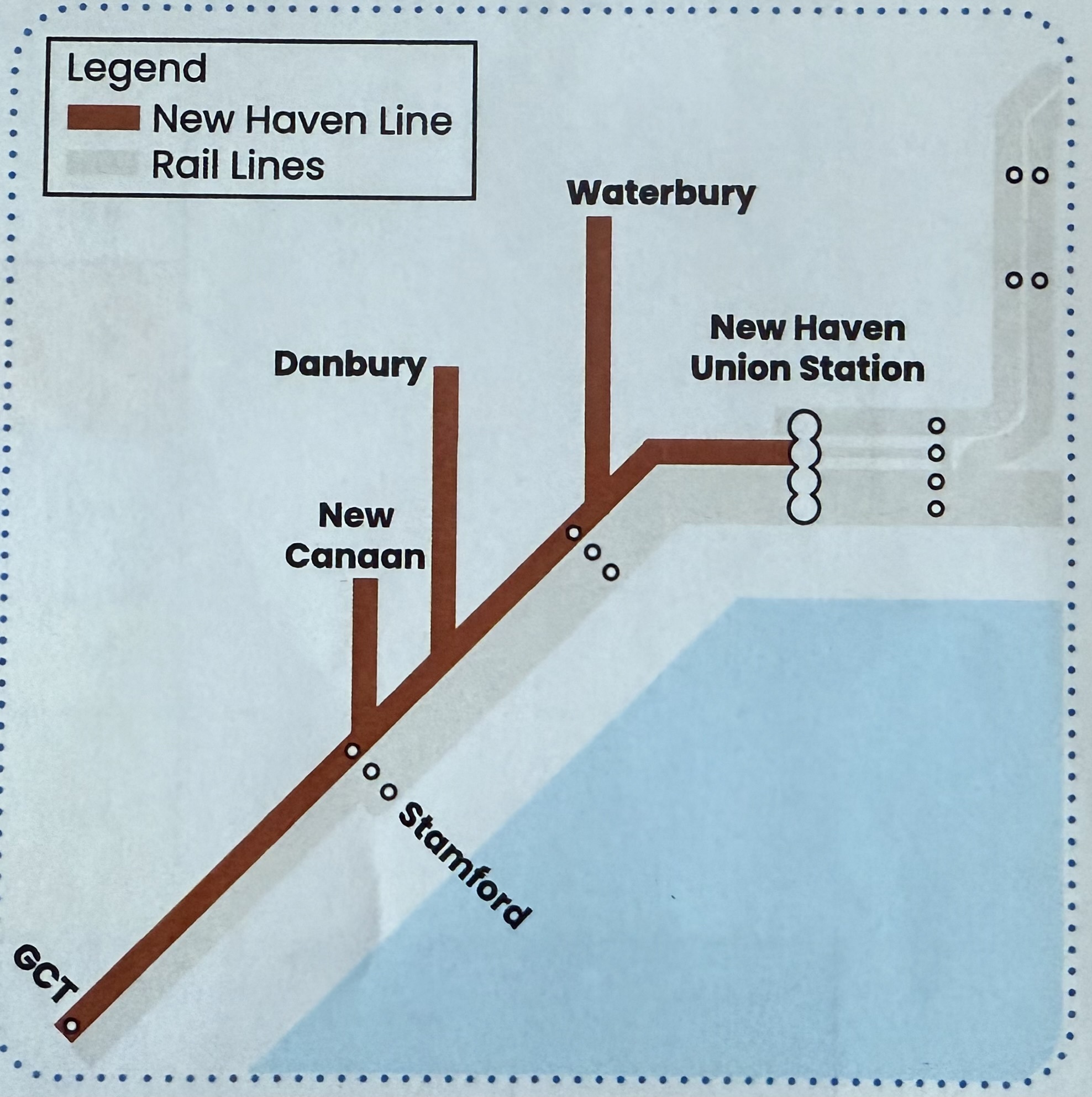
Adam Walker Photos
CTDOT's Dan Baker, Caroline Kieltyka, and Ben Limmer: Proposed fare hikes are modest compared to inflation.

CTDOT image
Summary chart of current and proposed Metro-North fares.
Riding the rails between New Haven’s Union Station and Grand Central Terminal during weekday rush hours could soon cost nearly $3 more each way — as part of across-the-board proposed fare increases designed to keep trains running amid rising costs and budget gaps.
The proposed increases were the focus of a public hearing held Tuesday from 5:30 p.m. to 7:30 p.m. at Kennedy Mitchell Hall of Records at 200 Orange St. The session featured representatives from the Connecticut Department of Transportation (CTDOT), who outlined the plan and took comments from the public.
“Your input is incredibly valuable. It will be absolutely important to make sure that we can continue to provide a safe, reliable rail transit system,” said CTDOT Bureau Chief of Public Transportation Ben Limmer.
CTDOT is proposing fare hikes of 5 percent in September 2025, followed by another 5 percent in July 2026.
For “peak” — or rush hour — commuters between New Haven and New York City, that would raise the cost of a one-way ticket aboard Metro-North from $24.50 today to $26.00 in September 2025, and then to $27.25 in July 2026.
Off-peak fares would increase from $18.25 to $19.25 in September 2025, and to $20.25 in 2026.
Monthly passes would climb from $466.25 to $494.75 next year, and to $518.50 the following year.
Officials said the hikes are necessary to help cover rising operational and maintenance costs, support workforce expenses, keep pace with inflation, and fill funding gaps identified in the state’s new bipartisan biennial budget signed earlier this month by Gov. Ned Lamont.
The proposed increases would affect Shore Line East, Hartford Line, and Metro-North services in Connecticut, including the New Haven Line and the New Canaan, Danbury, and Waterbury Branch Lines.
CTDOT described fares as a “critical” source of revenue that enables the agency and its service providers to operate a safe and reliable transportation system.
Across all lines, the proposed increases average 5.4 percent on the Hartford Line, 5.2 percent on Shore Line East, and 5.1 percent on the New Haven Line in 2025, followed by 5.1 percent, 4.9 percent, and 4.9 percent, respectively, in 2026.
Click here to read more about the proposed fare increases across all of these train lines.
In a related development, parking rates at Union Station — managed jointly by the city and state but budgeted locally — are also expected to rise. Doug Hausladen, head of the New Haven Parking Authority, told the Independent Tuesday that both the 24-hour and monthly parking rates are slated for increases. He noted that these hikes are tied to the station’s locally approved budget, not the governor’s.
According to Hausladen, through a local governance process — led by a joint City of New Haven and CTDOT committee and approved by both the mayor and the transportation commissioner — Union Station parking rates are reviewed and set to ensure the facility can cover necessary operating expenses.
As part of this process, monthly rates — unchanged since July 2018 at $97 — will rise by $10 starting July 1, 2025. For transient parkers, the 16-hour and 24-hour maximum daily rates will each increase by $1 on that date, a 7 percent and 5 percent increase respectively on the first day’s rate; rates for subsequent days will remain unchanged.
“Union Station, a 100-year-old historic building designed by Cass Gilbert, requires thoughtful stewardship and sustainable funding to support day-to-day operations and long-term preservation,” Hausladen said.
CTDOT has also conducted a formal service and fare equity analysis to comply with Title VI, which prohibits discrimination on the basis of race, color, or national origin. The agency emphasized its commitment to ensuring that all riders have equal access to public transit for work, school, and medical care. According to CTDOT, the analysis showed that the proposed fare changes would not create a disparate impact on minority riders or a disproportionate burden on low-income customers.
Officials argued that the hikes are modest compared to inflation. “Since 2018, inflation has driven consumer prices up by about 28 percent,” said CTDOT Supervising Planner Dan Baker. “By 2026, rail fares will have increased between 14 percent and 15 percent [over that same period.]”
Turnout at Tuesday’s hearing was low. Over the hour the Independent was present, just one member of the public appeared in person. Although three people had preregistered to speak, none attended. The hearing was livestreamed, though the Independent could not verify how many people watched online.
CTDOT will continue collecting public feedback before making a final decision. Two virtual hearings are scheduled: Monday, June 30, from 7 p.m. to 9 p.m., and Tuesday, July 1, from 12 p.m. to 2 p.m. CTDOT staff will also meet with riders at New London Station on June 25 and Hartford Union Station on June 26.
Public comments will be accepted through 11:59 p.m. on July 6, 2025. Riders can email DOTProposedTransitChanges@ct.gov, leave a voicemail at (860) 594‑3612, or mail written input to CTDOT’s Newington headquarters.
After the comment period closes, CTDOT is expected to review feedback and finalize the fare increase plan and equity analysis.

Thomas Breen photo
At Union Station on Wednesday.

Train line from New haven Union Station to Grand Central.